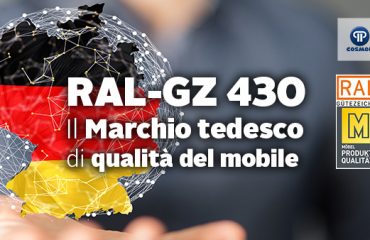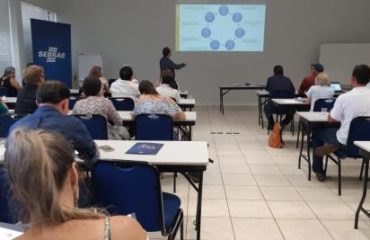How did the presence of Cosmob in Brazil start in 2012 and what was the main objective of the project?
The experience of Cosmob in Brazil started in the early 2000s, with the first missions in 2003. In those years, the strategic objective for a country in strong growth like Brazil, was to identify development models at an international level, able to represent cultural and economic references on which to develop new industrial policies. The research was extensive and involved the main industrialized countries of the world, starting from the United States and Germany. In this context, Italy has represented a reference, thanks to its models of industrial districts based on the large predominance of Small and Medium Enterprises. From the results of this work, which saw a strong exchange of institutional relations, in the mid-2000s, a real economic measure was defined for the development of Brazilian Small and Medium Enterprises, through the law for the establishment of APL (Arranjo Productive Local), translation of our Industrial Districts.
Within this context of a mainly institutional nature, but important for understanding the dynamics of development and growth of a country, the experience of the Cosmob in Brazil has begun. The activity started with a highly innovative project, aimed at creating a network of advanced technological services, capable of supporting the development of small and medium-sized businesses in the Amazon area, through the sustainable use and enhancement of local processes linked to the wood-furniture sector. A project of over 5 million dollars, funded by the Inter-American Development Bank, SEBRAE (the Brazilian Service Organization for Small and Medium-sized Enterprises) and the Marche Region for the international part.
Thanks to this project, the bases for the realization of laboratories for the quality control of products in in two Brazilian Amazonian States were created; more than 500 Brazilian wood-furnishing companies were also involved with technical assistance, and more than 10 technical missions by Brazilian entrepreneurs were carried out in Italy to learn and open collaborations with Italian companies.

How the project has evolved in Brazil, especially in terms of safeguarding the Amazon forest? Do you have any numbers on companies /people/projects that in recent years have involved Brazil?
The strong and positive experience gained with this project, allowed Cosmob to strengthen the experience with Sebrae and then to start and consolidate a solid partnership with the CNI (National Confederation of Industry), arriving in the following years to expand its own technical activity in almost all Brazilian states, 23 out of 27 overall. Today Cosmob is also involved in Brazil with UNIDO, for the realization of foresight studies, linked to the definition of future scenarios related to the production and use of renewable energies in production contexts.
This allowed us to work with several hundred Brazilian companies in the wood-furniture sector, favoring numerous opportunities for commercial exchanges and partnerships with Italian companies.
In addition to the dozens of technical missions and the hundreds of meetings between operators in the sector carried out in Italy and in Brazil, the consolidated link with technical standardization bodies and product control structures remains of key importance for the the circulation of products at an international level.
What about the safeguarding of the Amazon forest?
Cosmob, thanks to its technicians, has worked in all the Brazilian states of the Amazon rainforest: Acre, Amazonas, Amapà, Parà, Mato Grosso, Rondonia, etc. Certainly an important concept must be stated: the forest is not destroyed in order to make furniture! The connection of the furnishing sector with the forest world is very strong in terms of traditions, culture, values, but much less than other economic sectors due to the impact of using the raw material.
The reasons for deforestation are linked to economic interests, mainly attributable to the use of land (agriculture, construction, etc.) and resources (oil, gas, minerals, etc.). In all this the economic actors of the furnishing system are mainly spectators, who see the loss of an enormous natural heritage of biodiversity, which they would know how to use and manage in an intelligent and sustainable way.
And what about Italian furniture companies?
The Brazilian market is a complex market, both for the strong protectionism characterizing it, and also for the strong patriotic nature of its people. It is also a market that is part of the largest emerging countries, although in recent years it has experienced a significant slowdown. In addition to the major world sporting events recently held, it has experienced a steady growth for about 15 years. This growth was also possible thanks to the strong acquisition of international know-how in all economic sectors. The acquisition of woodworking technologies was very important; for machine tool companies, Brazil represented a very significant market.
The direct commercial penetration for companies in the furnishing sector was more complex. In fact, many more commercial and productive collaborations have been registered between the companies of the two countries, even if significant commercial actions of more structured Italian companies have achieved good results.
In this sense, the strong novelty that will positively characterize the future growth prospects of trade between Italy and Brazil should be highlighted; in fact, thanks to the strategic work carried out by FederlegnoArredo, with the recent free trade agreements between the European Commission and Mercosur, the very high Brazilian customs duties for the import of furniture system products have been significantly reduced.
What will the future be, even in the light of this disaster?
The defense of a natural heritage like the Amazon rainforest is a duty of all, and the attention given to the phenomenon of fires by all the world media is very positive. Beyond the specific interests, even of some political opportunities, I think that the defense of the sustainable management of natural resources like forests, waters, subsoil reserves, should have a supranational government for the protection of humanity.
With regards to the economic prospects in the relationship between Brazil and Italy, I think that there are the conditions for a strong revitalization of industrial relations also for the Made in Italy manufacturing sectors such as those of the furnishing system.
Experience has taught us not to follow improvisation but to base our actions on strategic projects and programs. In this sense we wanted to gather the main COSMOB experiences in the document dedicated to “Over 15 years of innovative projects in Brazil“.
The interview is published on the AGI website (Italian News Agency): www.agi.it/
For more information:
Alessio Gnaccarini / General Manager
a.gnaccarini@cosmob.it
Office: (+39) 0721 481269









